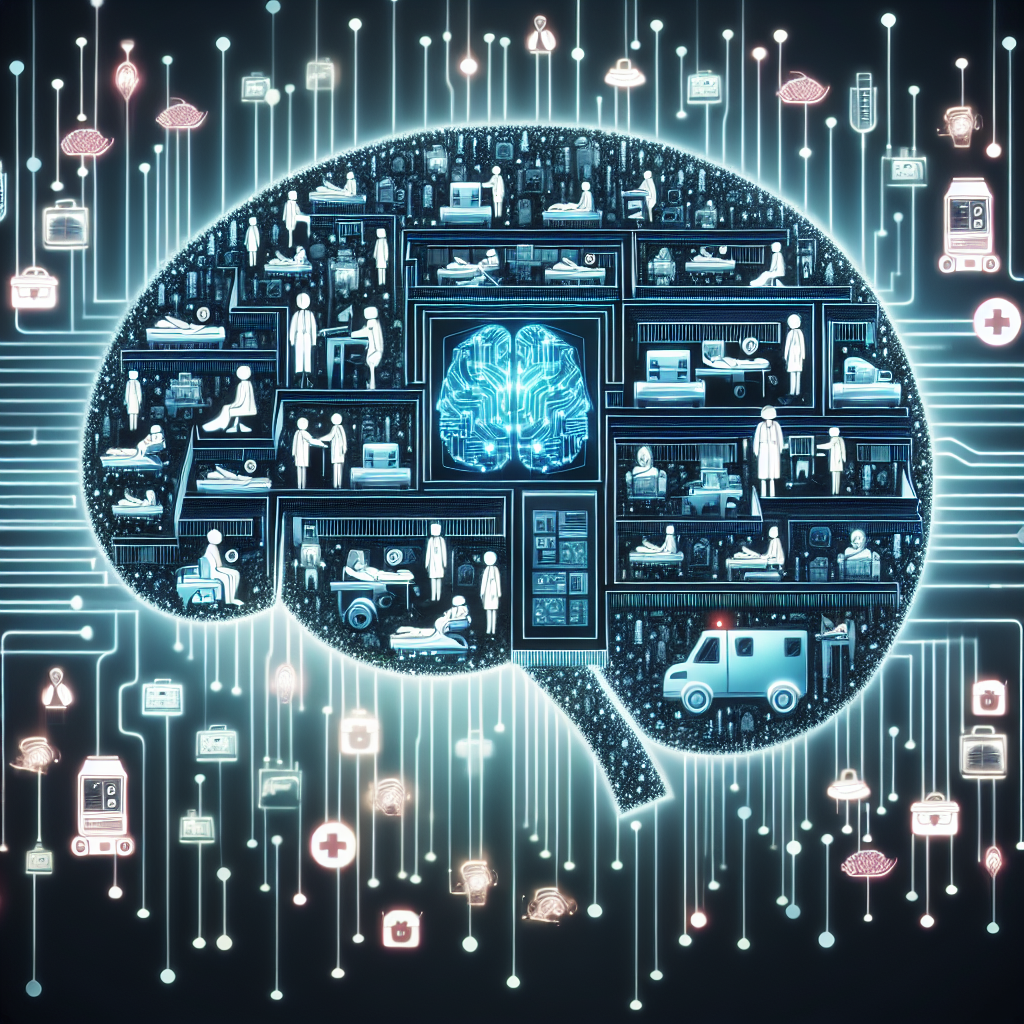Artificial intelligence (AI) is revolutionizing the way healthcare is delivered. From improving diagnosis accuracy to streamlining administrative tasks, AI tools are transforming the healthcare industry in numerous ways. In this article, we will explore how AI tools are revolutionizing healthcare and the benefits they bring to both patients and healthcare providers.
The Role of AI in Healthcare
AI in healthcare refers to the use of complex algorithms and machine learning to perform tasks that typically require human intelligence. These tasks include analyzing medical images, predicting patient outcomes, and identifying patterns in patient data. AI tools can also automate administrative tasks, such as scheduling appointments and processing insurance claims, to free up healthcare providers to focus on patient care.
One of the key areas where AI is making a significant impact is in diagnostic imaging. AI algorithms can analyze medical images, such as X-rays and MRIs, to detect abnormalities and help radiologists make more accurate diagnoses. By leveraging AI tools, healthcare providers can improve the speed and accuracy of diagnosis, leading to better patient outcomes.
Another area where AI is revolutionizing healthcare is in predictive analytics. AI algorithms can analyze large amounts of patient data to predict patient outcomes and identify at-risk patients. This can help healthcare providers intervene early to prevent complications and improve patient care.
AI tools are also being used to personalize treatment plans for patients. By analyzing patient data and medical literature, AI algorithms can recommend the most effective treatment options for individual patients based on their unique characteristics. This personalized approach to healthcare can lead to better outcomes and reduce healthcare costs.
Benefits of AI in Healthcare
There are numerous benefits of AI in healthcare, both for patients and healthcare providers. Some of the key benefits include:
– Improved diagnosis accuracy: AI tools can analyze medical images and patient data to help healthcare providers make more accurate diagnoses, leading to better patient outcomes.
– Increased efficiency: AI tools can automate administrative tasks, such as scheduling appointments and processing insurance claims, to free up healthcare providers to focus on patient care.
– Personalized treatment plans: AI algorithms can recommend the most effective treatment options for individual patients based on their unique characteristics, leading to better outcomes.
– Predictive analytics: AI algorithms can analyze patient data to predict patient outcomes and identify at-risk patients, helping healthcare providers intervene early to prevent complications.
– Reduced healthcare costs: By improving diagnosis accuracy, increasing efficiency, and personalizing treatment plans, AI tools can help reduce healthcare costs and improve the overall quality of care.
FAQs about AI in Healthcare
Q: How is AI being used in diagnostic imaging?
A: AI algorithms are being used to analyze medical images, such as X-rays and MRIs, to help healthcare providers make more accurate diagnoses. By leveraging AI tools, healthcare providers can improve the speed and accuracy of diagnosis, leading to better patient outcomes.
Q: How can AI help healthcare providers improve patient care?
A: AI tools can automate administrative tasks, such as scheduling appointments and processing insurance claims, to free up healthcare providers to focus on patient care. AI algorithms can also analyze patient data to predict patient outcomes and identify at-risk patients, helping healthcare providers intervene early to prevent complications.
Q: Are there any privacy concerns associated with AI in healthcare?
A: Privacy concerns are a valid consideration when it comes to AI in healthcare. It is important for healthcare providers to ensure that patient data is protected and that AI algorithms are used in compliance with privacy regulations, such as HIPAA.
Q: How can healthcare providers implement AI tools in their practice?
A: Healthcare providers can implement AI tools in their practice by partnering with AI companies or hiring data scientists to develop custom AI solutions. It is important for healthcare providers to carefully evaluate AI tools and ensure that they are aligned with their practice goals and patient needs.
In conclusion, AI tools are revolutionizing healthcare in numerous ways, from improving diagnosis accuracy to streamlining administrative tasks. By leveraging AI algorithms and machine learning, healthcare providers can improve patient care, reduce healthcare costs, and ultimately improve patient outcomes. As AI technology continues to advance, the possibilities for its application in healthcare are endless, and the benefits for patients and healthcare providers are immense.

